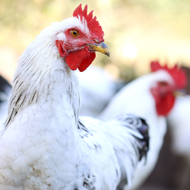
Second human case of H10N8 while more cases of H7N9 reported
China has reported a second case of a human contracting the strain of bird flu H10N8.
It follows the death of a 73-year-old woman from the Jiangxi Province, early last month.
She was the first ever reported case of H10N8 in a human, and became ill after visiting a live bird market four days earlier.
The latest case is reported to be a a 55-year-old woman who had also been to an agricultural market. She is said to be seriously ill.
Wild birds and poultry have been known to carry the virus although these two cases are the first time that it has spread to humans.
Meanwhile daily reports in China of the more H7N9 cases of bird flu transmitted to humans, has resulted in the European Centre for Disease Prevention and Control updating its rapid risk assessment for the strain.
It said that as Monday (27), 251 cases of human H7N9 had been reported with 56 deaths, although it added that "final outcomes are not routinely reported after the initial notification."
The ECDC said that although human-to-human transmission could not be ruled out, there was no indication yet of this being sustained.
"The persistence of this virus in poultry represents a significant long-term threat either as zoonosis or perhaps a pandemic virus. Both eventualities should be prepared for," the ECDC added.
For the updated ECDC rapid risk assessment click here.



 The latest
The latest